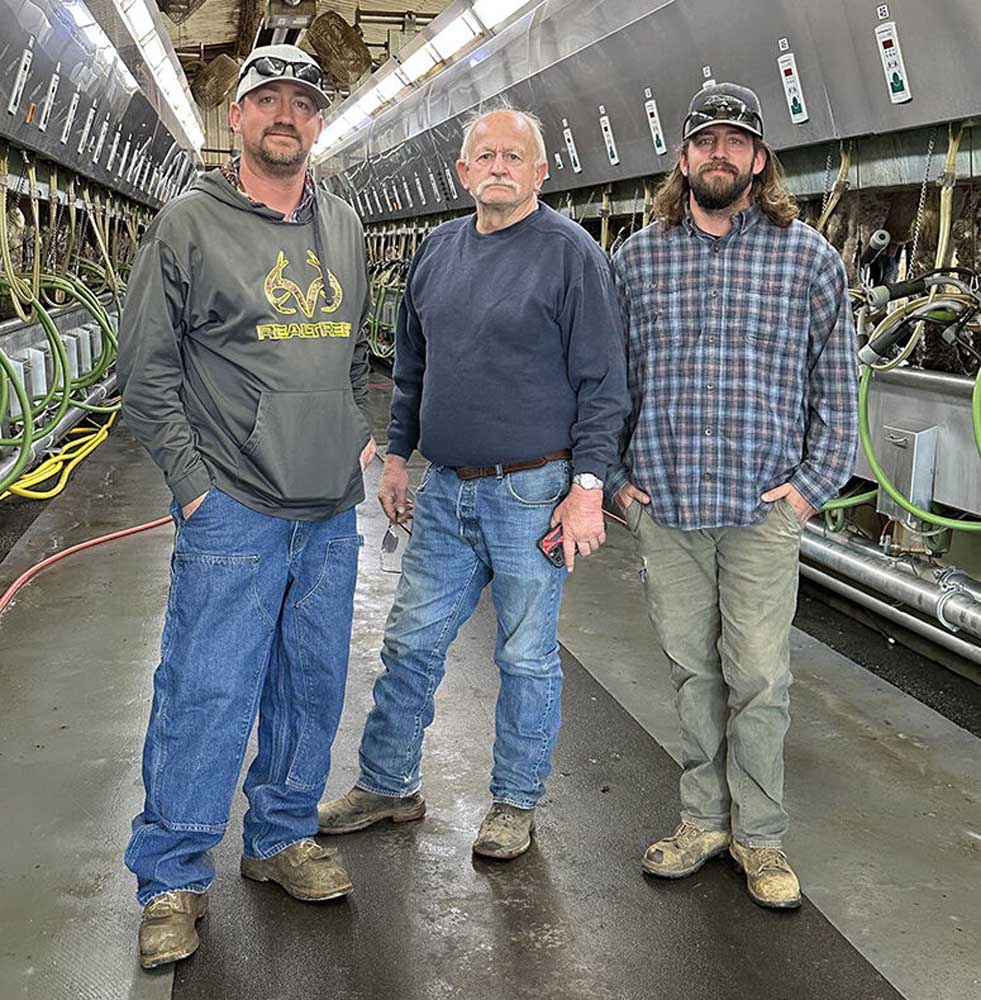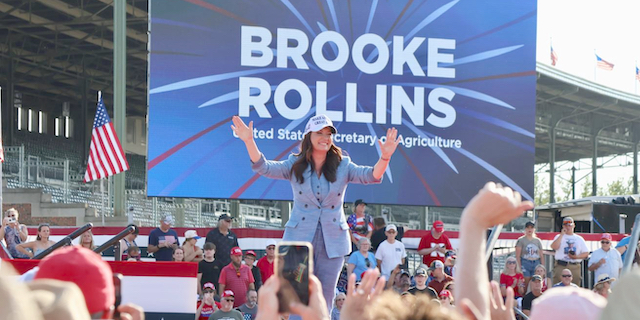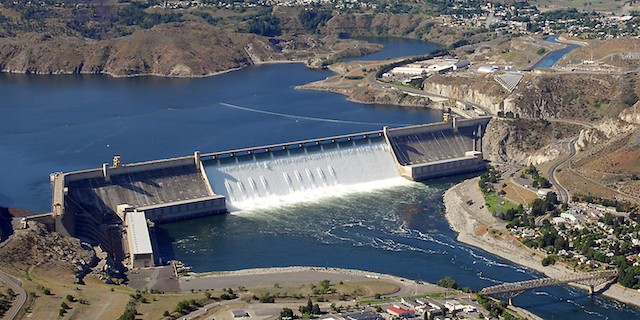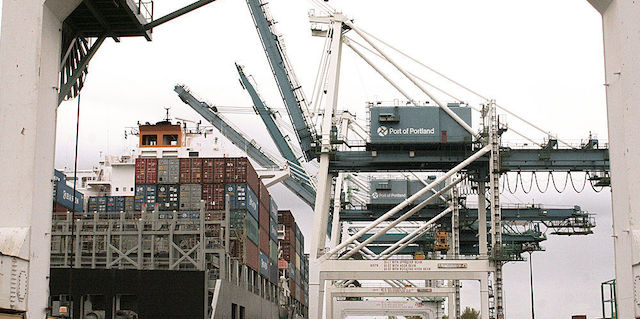Fekkes Dairy: Operation changes with the times
Published 3:00 am Thursday, June 1, 2023

- Left to right are BJ, Bill and Frank Fekkes, who operate Fekkes Dairy near Ephrata, Wash.
EPHRATA, Wash. — Bill Fekkes and his wife, Bobbie, have been on this farm for over 40 years, after moving from their original farm on the west side of the state.
Fekkes Dairy currently milks 3,300 cows and farms roughly 1,500 acres. Both of their boys are involved in the family operation. BJ takes care of the cows and feedlots and Frank manages the farming side of the business.
The cow herd is mostly Holsteins, although they recently started to bring some Jerseys into the herd.
“We have three locations that house our cattle. Our operating dairy is in Ephrata and we have two heifer replacement lots. One is in Ellensburg and the other is in Quincy, Bill said.
Between all three operations they are feeding 11,000 head of cattle.
“With that many mouths to feed we can’t grow it all ourselves, so we have to purchase some from our neighbors,” he said.
On the farming side they mainly grow corn silage with a small alfalfa rotation.
“We also have our own chopper and trucks, so that helps bring down our feed costs,” he said.
He also has some very good employees, he said.
“My main one, who manages the dairy, is Francisco, and he’s like part of the family. It’s difficult to get good employees but we have a good team, and employ about 45 people,” Bill said.
Most of the liquid manure is spread on the crop ground. The solids are hauled off site and composted, and neighboring farmers use it on their crops.
The dairy industry has taken big strides to get into a beef program, to bring in more income.
“With the latest technologies that allow us to use sexed semen, we are able to keep our dairy needs satisfied with female calves, but also breed some of the cows to Angus bulls — to create beef cattle to help fill the needs of feeding the world,” he said.
There is a good market for the half-Angus bull calves; they are bringing about $180 to $200 apiece as day-old calves, whereas a Holstein bull calf is only worth about $80, he said.
“We have a regular buyer for the beef-cross calves,” Bill said.
The dairy industry is changing, he said.
“This industry has changed so much since I started. There are only 400 dairies left in Washington state. With employee rules and environmental regulations it is taking a toll on our industry. But, like every other dairyman, we put our boots on every morning and go at it,” he said.
“We’re going to try to keep going, at least for now, and my sons want to stay in it,” Bill said. “They both have families; I have seven grandkids. They are not old enough yet to be much help, but they are a lot of fun and maybe some of them will eventually have an interest in cows.”
It’s important that some folks are dogged enough to keep trying to make a living raising crops and dairying, to produce food for this country, he said.
“Most people could go without a lot of things, but they can’t go without food.”







